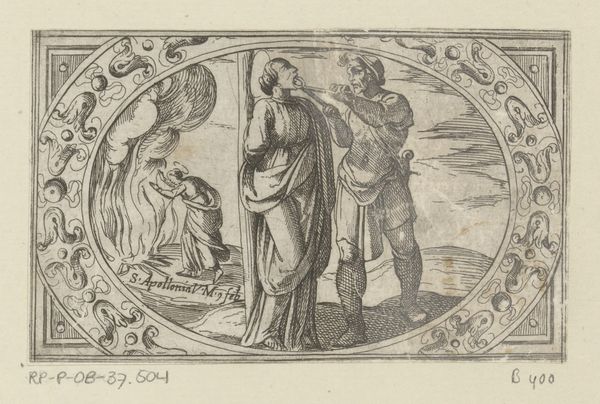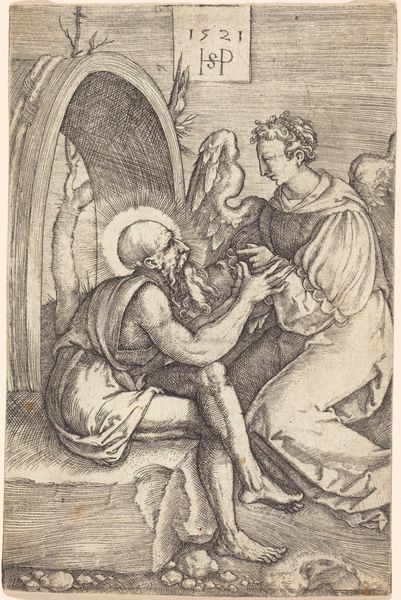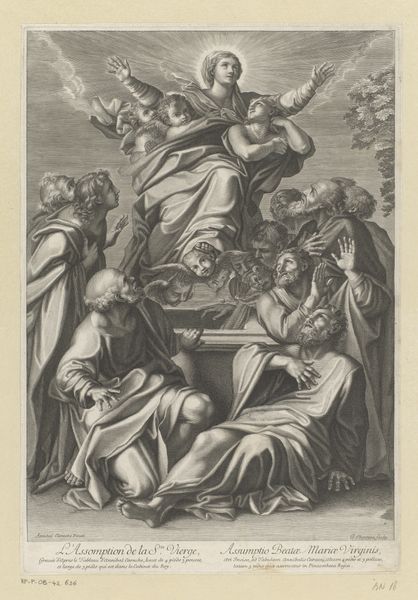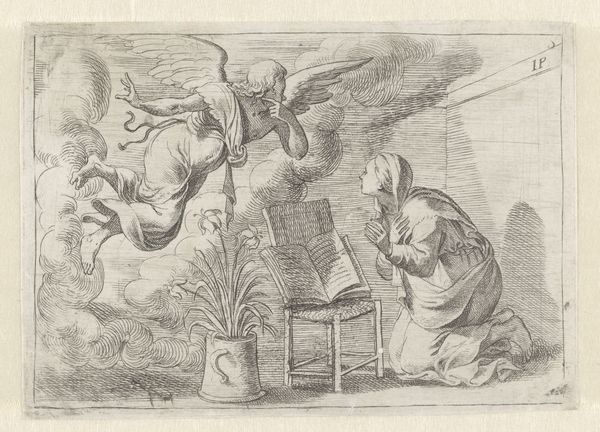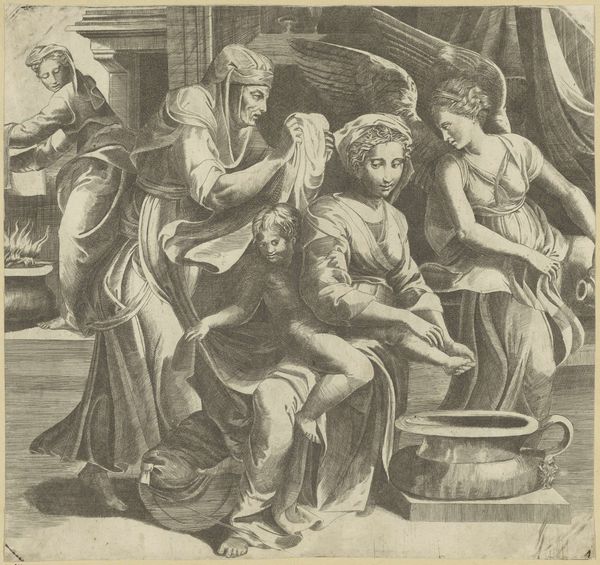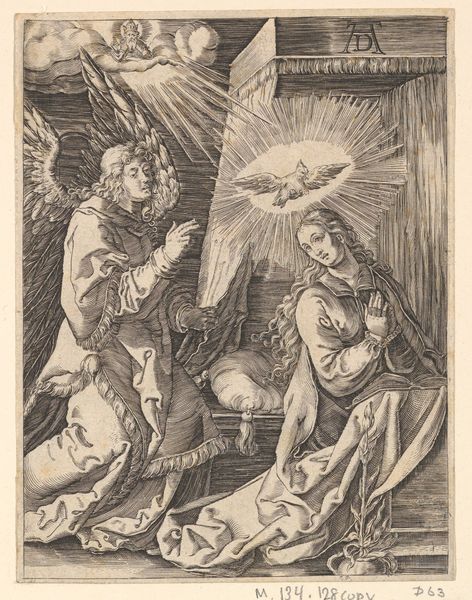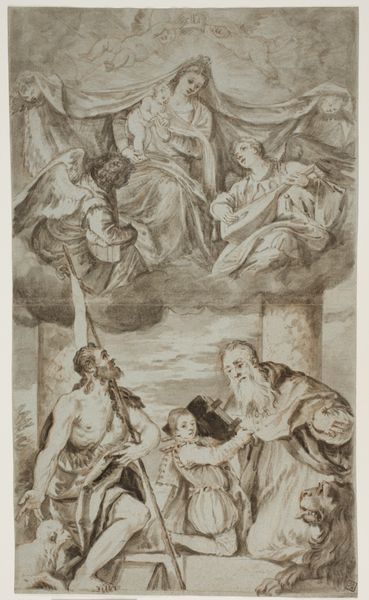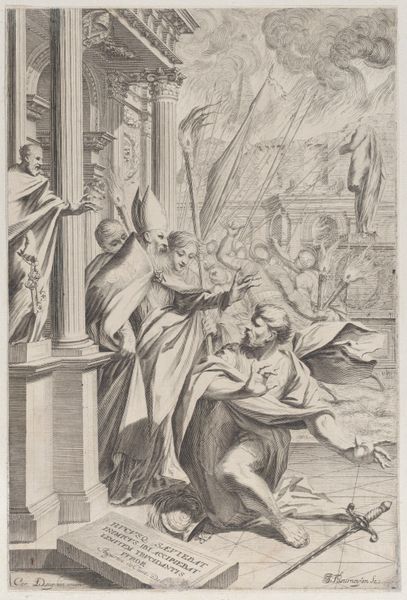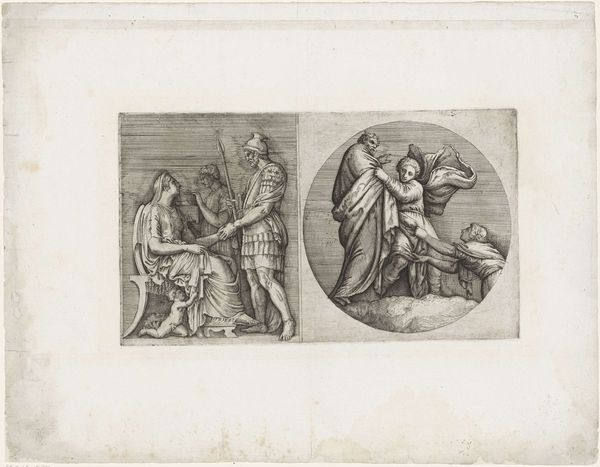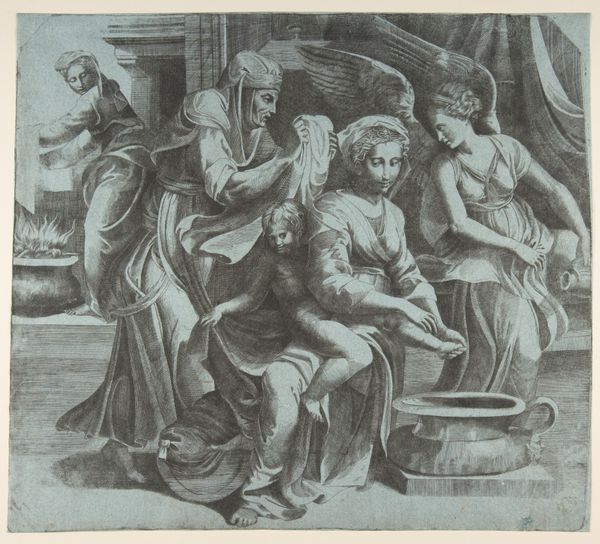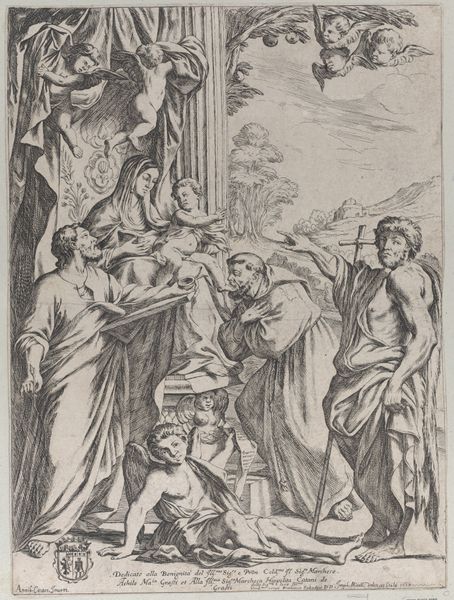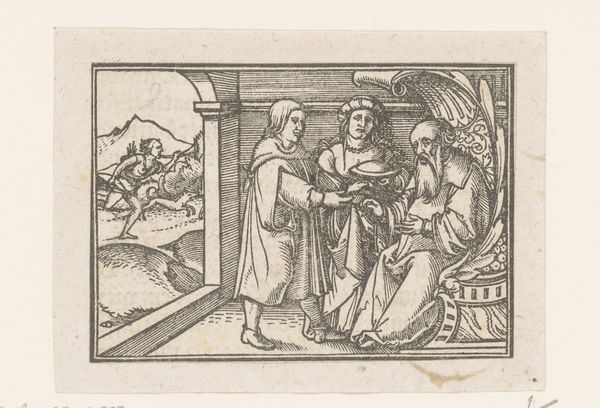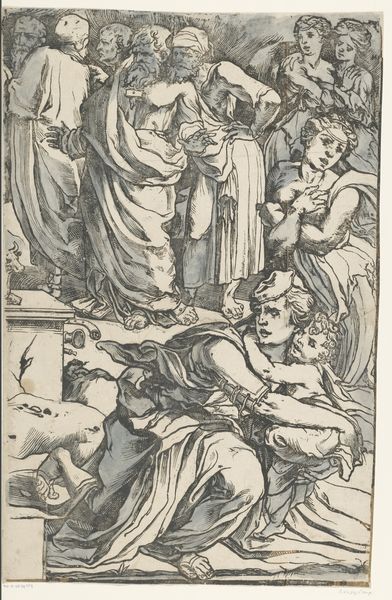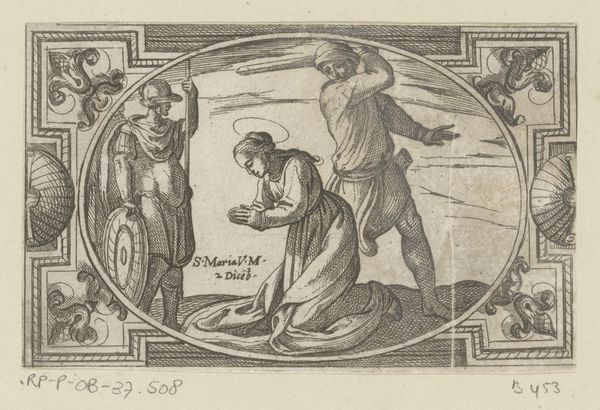
print, engraving
#
baroque
# print
#
old engraving style
#
figuration
#
line
#
history-painting
#
engraving
Dimensions: height 73 mm, width 114 mm
Copyright: Rijks Museum: Open Domain
This engraving, H. Lucina, was created by Antonio Tempesta in the late 16th or early 17th century. The image is brought to life through a printmaking technique: an image is etched into a metal plate, inked, and then pressed onto paper. The network of fine lines that define the figures, drapery, and landscape, highlights the skill involved in this form of image-making. But beyond the artist's technique, the print has a social significance. The possibility of reproducing images, like H. Lucina, meant that artworks could be circulated widely, far beyond the circles of wealthy patrons. Tempesta's choice of printmaking allowed for a democratization of art, making religious and mythological scenes accessible to a wider audience. When we consider H. Lucina, it's important to recognize that the impact of printmaking extends far beyond the image itself, influencing its availability, affordability, and cultural relevance.
Comments
No comments
Be the first to comment and join the conversation on the ultimate creative platform.
